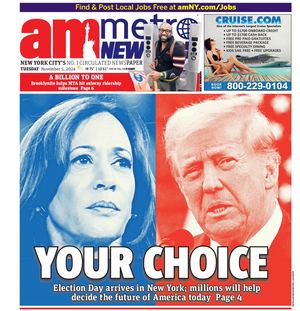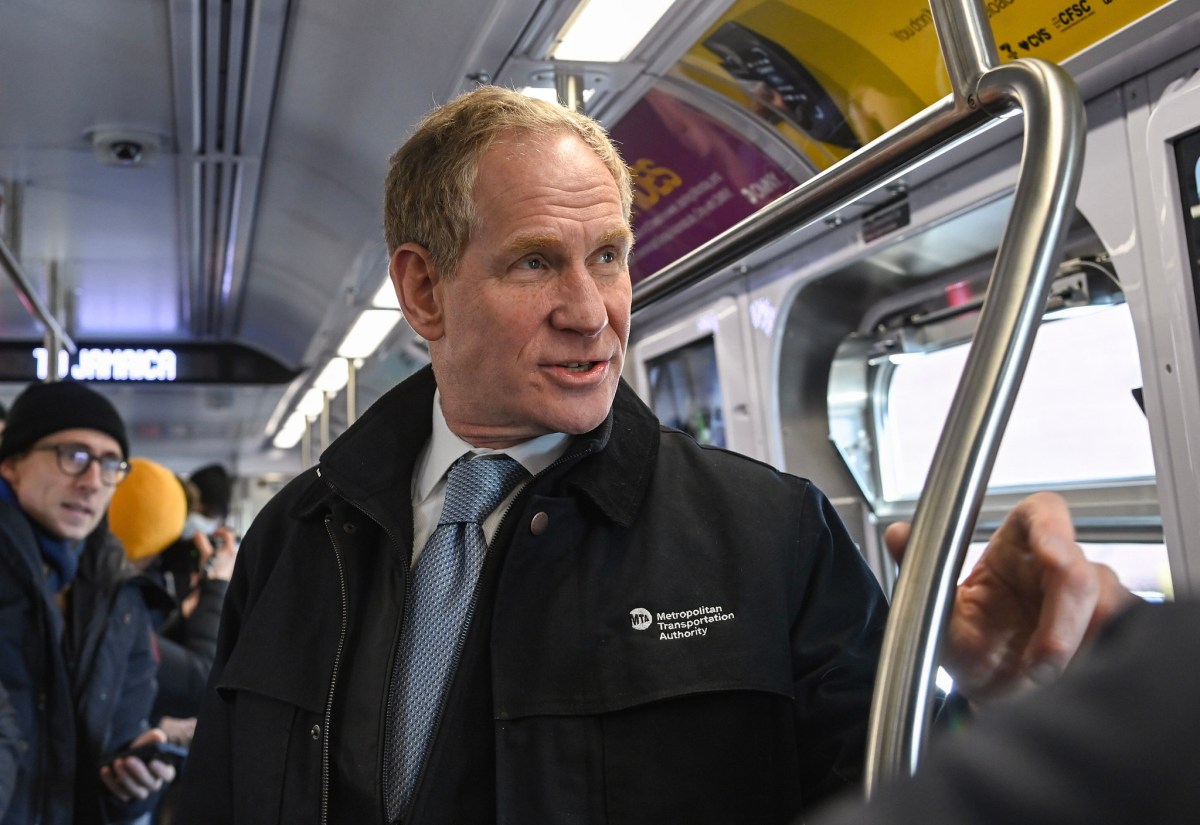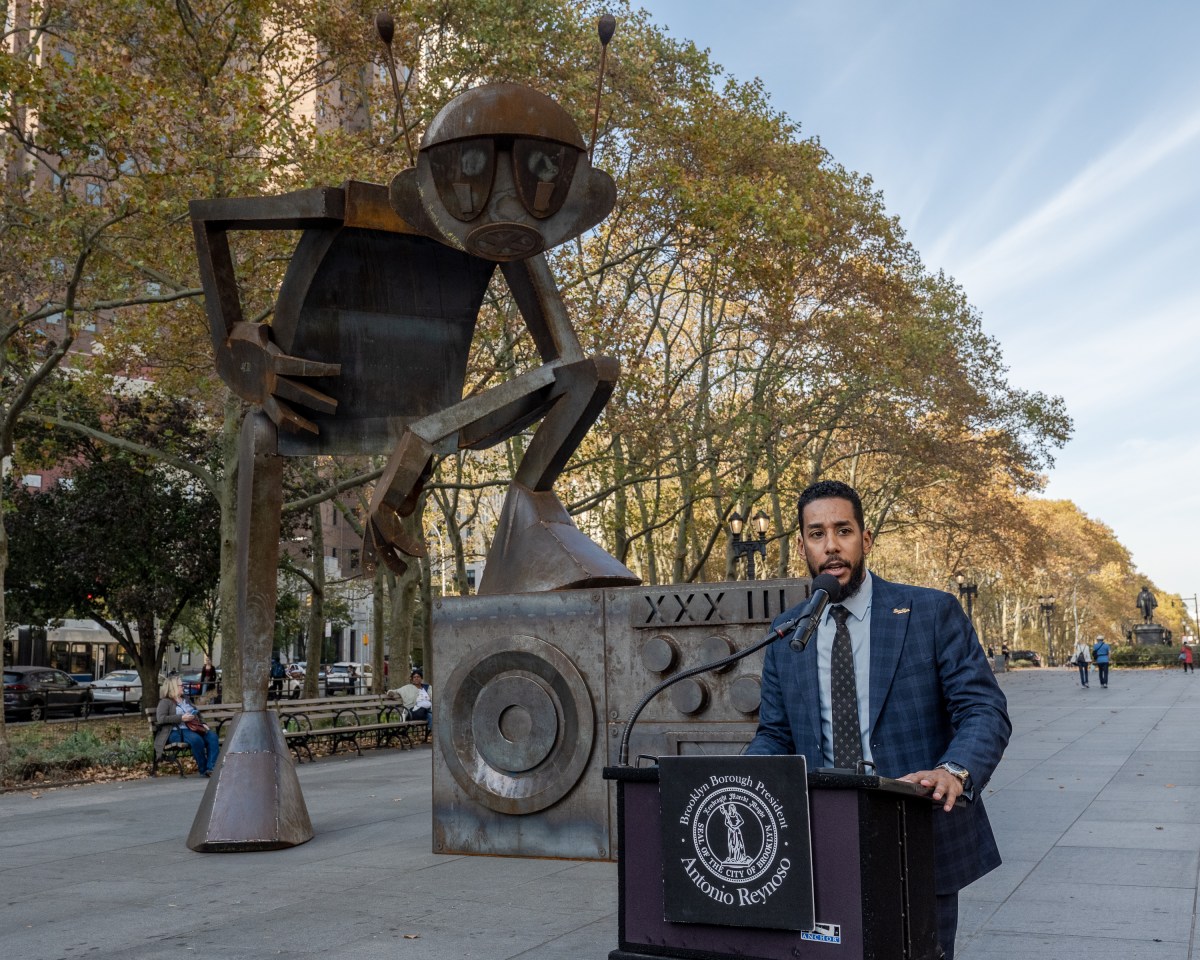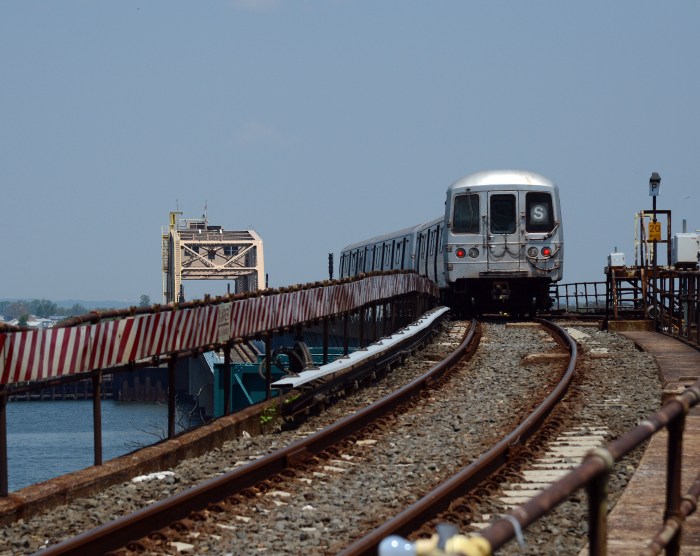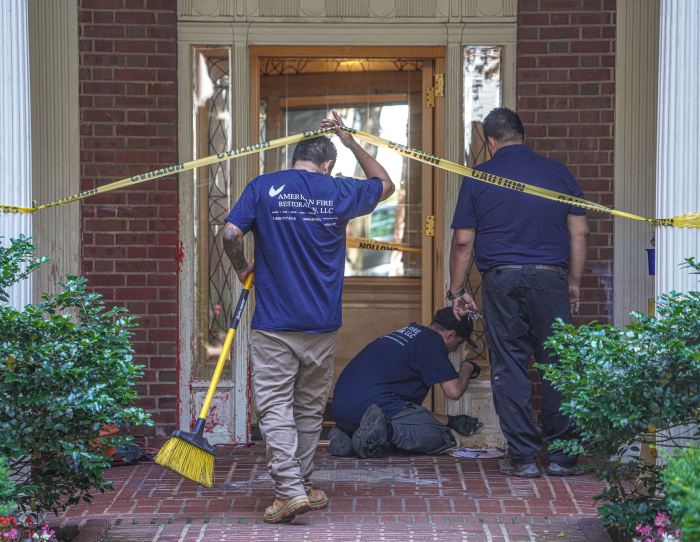Janno Lieber, the head of the MTA, said he will not resign from his post after Gov. Kathy Hochul’s shock decision to pause congestion pricing, but the going is about to get tough as his agency faces a $15 billion budget hole for its modernization plans.
“I’m the patron saint of challenging projects and challenging causes. It’s not in my nature to walk or to quit,” said Lieber, the agency’s chair and CEO, in his first public comments since Hochul’s decision. “People did a lot of hard work in hard times and I couldn’t justify walking out.”
Before the governor’s about-face, which Lieber said he only learned of a day in advance, the MTA had loads of major construction work planned to modernize New York’s transit system with congestion pricing money. It planned to invest in extending the Second Avenue Subway to 125th Street, to electrify its bus fleet, to build subway elevators for wheelchair users, and to modernize Great Depression-era train signals.
But now, after what Lieber dubbed “disinvestment from mass transit,” the MTA will need to “reprioritize and shrink” its capital plan and focus instead on urgent “state-of-good-repair” work to keep the aging system from falling apart, as it proverbially did in the 2017 “Summer of Hell” that preceded the approval of congestion pricing.
“This is not something we do lightly,” Lieber said. “But we simply cannot award contracts without dedicated funding in place. That’s where we are.”
Lieber has assigned the MTA’s Deputy Chief Development Officer, Tim Mulligan, to develop a progress report on how the agency can undertake the shrinkage of its capital program and present it at the next MTA Board meeting on June 26.
As for transit accessibility work, which the MTA is under a federal court mandate to complete, Lieber will assign Chief Accessibility Officer Quemuel Arroyo to determine how the MTA can “squeeze out as much accessibility work” as possible. The MTA planned to make 39 subway stations and 9 LIRR stations accessible with congestion pricing money, all of which is now at risk; less than 30% of subway stations today are accessible.
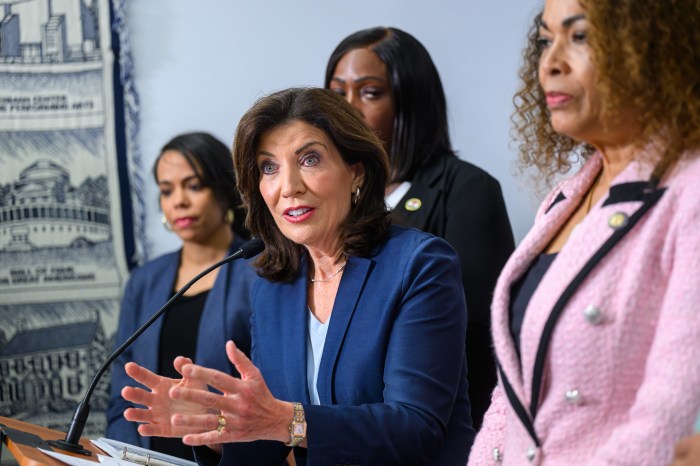
Hochul’s move also complicates the MTA’s hopes to modernize its system in the future, as well, because it in effect makes capital spending more expensive. Major construction projects are funded by bonds, and the $1 billion in annual revenue from congestion pricing was to be used as backing for a $15 billion bond issue to finance its major construction priorities.
Now, without a permanent, dedicated revenue stream, bondholders could be less assured that they’ll get a return on their investment; S&P said Monday that Hochul’s decision could lead to a drop in the MTA’s bond rating, meaning it would have to borrow money at higher interest rates and, by extension, pay more to complete capital projects. S&P currently rates MTA bonds at A-.
MTA brass have thrown cold water on the idea of simply proceeding with the tolling plan as previously scheduled and ignoring the governor, whose legal authority to unilaterally pause a state law has been questioned. Lieber noted that the feds need to give a final sign-off on the MTA undertaking a “Value Pricing Pilot Program” (VPPP) before the cameras at points of entry to Manhattan below 60th Street are turned on; the state Department of Transportation, directly controlled by Hochul, now doesn’t intend to put its signature on the VPPP, imperiling the plan.
“The federal approval is what’s needed in order to initiate congestion pricing,” said Lieber. “The governor has been very upfront about the fact that that ain’t coming at this time from the state of New York, they’re not gonna sign off on it, and therefore we’re stopped.”
The indefinite pause is almost certainly going to be the subject of litigation against the state.
Following the announcement, the governor failed to convince the Legislature to pass alternate funding proposals to get the MTA $1 billion in replacement revenue, whether by raising payroll taxes or skimming from the state’s general fund. Lawmakers left Albany at the end of the session last week without approving a new funding source.
On Monday, the governor reiterated her contention that major capital projects would still be completed, and said that the idea only congestion pricing could fund them “shows a lack of imagination.“
In the meantime, a broad coalition of congestion pricing supporters — has brought the heat to the governor over what they deem a “betrayal” of her previous support for its goals. Lieber, for one, said the support has warmed his heart.
“I am incredibly moved by how New Yorkers, transit advocates but regular New Yorkers as well, have turned out in full force and raised their voices to show support for transit and for the MTA,” said Lieber. “Loving the MTA is not a 365 job for New Yorkers, but in the last week we have felt it.”
